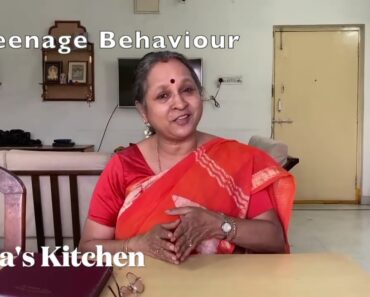Gastroenteritis or stomach flu is a bowel infection that causes inflammation in the stomach and intestines and is accompanied by diarrhea, nausea, and vomiting (1).
In the US, acute gastroenteritis in children accounts for 200,000 hospitalizations and 300 deaths in children every year (2). However, most gastroenteritis infections are not severe, and the symptoms last for around two days. It takes around seven days for the infection to subside completely. Children can recover at home by drinking plenty of fluids and taking adequate rest (3) (4). Severe infections may take several days to clear (5).
Read about the causes, symptoms, risks, diagnosis, treatment, and prevention of gastroenteritis in children.
What Are The Causes Of Gastroenteritis In Children?
The causes of gastroenteritis in children are (5):
- Viral infection: Most viral gastroenteritis is caused by rotavirus, adenovirus, or norovirus (6). In the UK, every child below five years gets a rotavirus infection. Children become immune to this virus after the first infection. Adenovirus and rotavirus infections are more common in infants and children than in teenagers. Norovirus mostly infects older children and adults (7).
- Bacterial infection: Bacterial species such as Campylobacter, Salmonella, and Escherichia produce toxins that may cause food poisoning.
- Parasitic infection: Parasites live on or inside another organism, causing parasitic infection, which may also cause food poisoning.
- Water contamination: Gastroenteritis may also occur if bacteria or other microbes contaminate the water. This usually occurs in countries with poor sanitation.
The germs causing gastroenteritis may spread easily if children (3)
- Eat food after touching a contaminated object
- Share eatables with a sick person
- Live with an infected person
What Are The Symptoms Of Gastroenteritis In Children?
The most common symptoms of gastroenteritis are (8):
- Diarrhea that lasts for two to four days (loose and watery stools at least thrice in 24 hours)
- Vomiting
- Abdominal pain
In addition, children may also experience (7) (9)
What Are The Risk Factors And Complications Of Gastroenteritis?
The factors that increase the risk of gastroenteritis in children are (6) (7) (10):
- Weak immunity
- Young age (occurs more commonly in infants and young children)
- An underlying disease
Although gastroenteritis complications are uncommon in children, they may occur in those with chronic conditions, such as diabetes. Some complications are (5) (11):
- Dehydration: Children below six months are at risk of getting dehydrated and require close monitoring. They should wet at least half the usual number of nappies. Cool or greyish skin and drowsiness may be a sign of dehydration.
For older children, examine the urine color and keep a count of the number of times they urinate. If children are dehydrated, they may feel dizzy, pass dark urine, and experience dry lips and mouth.
Moreover, fluid and electrolytes are also lost through stool and vomiting, leading to an imbalance in the body. Therefore, it is important to replenish the loss by drinking plenty of fluids.
- Reactive complications: In rare cases, the intestinal infection may cause joint inflammation (arthritis), eye inflammation (conjunctivitis), or skin inflammation.
- In rare cases, gastroenteritis infection may spread to joints, bones, or meninges (membranes protecting the brain and spinal cord). This generally occurs in Salmonella spp. infection.
- Lactose intolerance: This condition may occur in children for some time after gastroenteritis infection. It occurs because the gut lining gets damaged and cannot produce enough lactase to digest the lactose present in the milk. The condition improves once the gut lining heals.
- Hemolytic uremic syndrome: In rare cases, gastroenteritis caused by E.coli infection may lead to anemia, low platelet count, and kidney failure. However, if the condition is recognized early, children can recover.
- Gastroenteritis may also lead to malnutrition in some children.
- Other complications are persistent diarrhea syndromes (three or more stools per day for 14 days continuously) and irritable bowel syndrome (a large intestine disorder, causing cramps, abdominal pain, constipation, and other symptoms).
When To See The Doctor?
You should contact your healthcare provider immediately if your child has (4) (8):
- Fever
- Seizure because of fever
- Vomiting and diarrhea for more than six hours
- Blood in vomiting
- Bile in vomiting
- Bloody diarrhea
- Severe stomach pain
- Signs of severe dehydration
- Dullness and lethargy
- Been unable to keep fluids in the body for more than 24 hours
- No tears while crying
- Sunken eyes
How Is Gastroenteritis Diagnosed?
The typical symptoms of gastroenteritis make it easily recognizable. However, if you consult the doctor, they may examine the temperature, heart rate, tenderness in the tummy, and signs of dehydration (5).
No tests are performed unless children (5)
- Have bloody stools
- Have food poisoning
- Are admitted to hospital
- Are not getting better
How Is Gastroenteritis Treated?
Some important considerations about gastroenteritis treatment are (3) (4):
- Mild cases of gastroenteritis do not need any treatment and subside by themselves.
- Do not give any medication to children without the doctor’s advice. If your child has pain or fever, give acetaminophen or ibuprofen.
- Racecadotril is a prescription medication for watery diarrhea because it helps reduce fluid loss through stools. It may be given to children above three months (5).
- Antibiotic treatment is not required for viral gastroenteritis (10).
What Are The Home Remedies For Gastroenteritis In Children?
Here are some tips you may follow to treat gastroenteritis at home (3) (4):
- Allow children to take adequate rest.
- Prevent dehydration in children by giving them plenty of water and oral rehydration therapy.
- Don’t give sugary drinks or fruit juices as they might worsen diarrhea.
- When your child starts eating again, give them a regular diet. This will help reduce the symptoms of infection faster.
- Some foods you may include in your child’s diet are cereals, bread, yogurt, potatoes, bananas, apple juice, and vegetables (8).
- Ask your healthcare provider about the foods to avoid giving children. Avoid common foods, such as chips, cakes, chocolates, ice cream, and cream (10).
- If your baby is breastfeeding, feed them more frequently. Give them oral rehydration salts if they urinate less or pass dark urine.
- Avoid sending your children to schools, childcare centers, or swimming pools.
- A herb called basil may control diarrhea and vomiting (12).
How To Prevent Gastroenteritis In Children?
The following steps may help prevent the spread of infection in children (4) (10):
- Encourage them to wash their hands thoroughly before handling food and after using the toilet.
- Ensure the bathrooms and toilets are regularly cleaned.
- Wash their clothes with hot water separately.
- Advise them not to share their food and drink with anyone.
- Keep the kitchen area clean.
- Get your infants vaccinated against rotavirus.
- Use a disinfectant to clean tables, doorknobs, and other surfaces that may be easily touched by children (3).
Mild gastroenteritis in children is not a cause for concern and clears out in a few days. However, in severe infection, consult a doctor if you see any worrying symptoms in your children. Allow children to rest well and drink plenty of fluids. Also, teach them good hygienic habits to help prevent the risk of infection.
References:


































